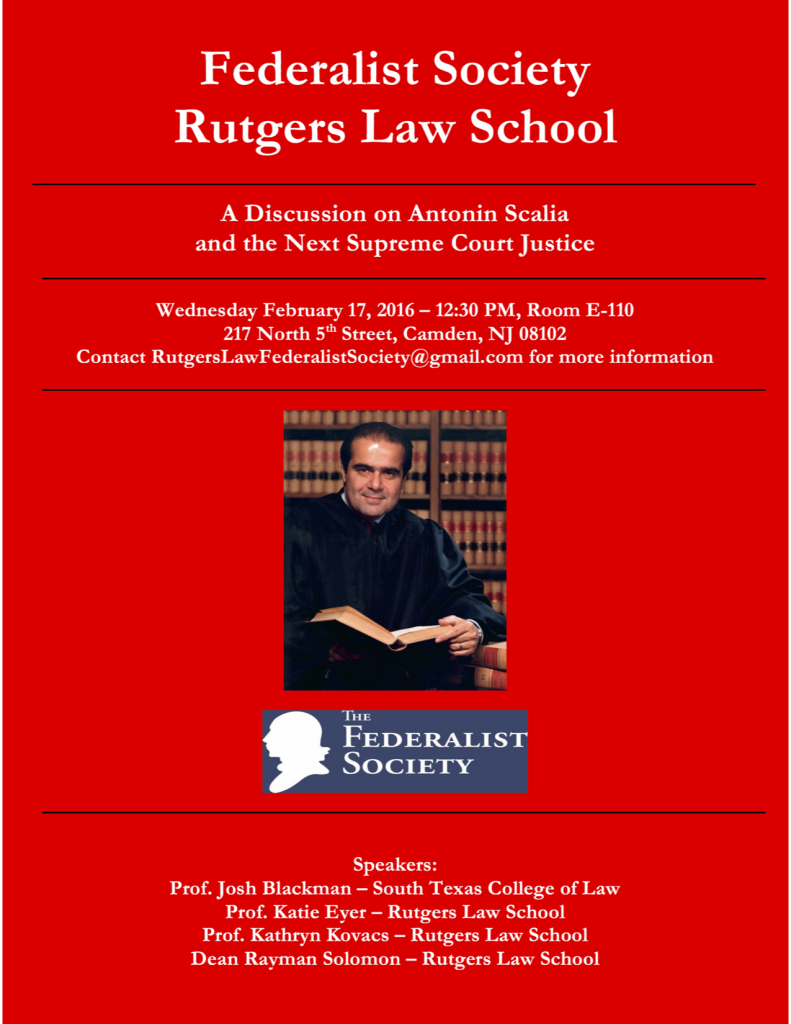My LexPredict colleagues–Mike Bommarito and Dan Katz–developed a post based on FantasySCOTUS data about how Scalia’s absence affects pending cases. For cases that have been argued, and voted on in conference, but not yet decided publicly, Justice Scalia’s votes are voided. If Justice Scalia’s vote was not the deciding vote, then the case can be decided as usual. However for cases where Justice Scalia’s vote was the deciding vote, the Court can either affirm by an equally divided Court, or schedule the case for reargument next term.
FantasySCOTUS identified four cases, already argued, where Scalia was likely to be in a majority opinion in a 5-4 case:
Frankly, a 4-4 decision in these four cases, or a decision to reargue it next year, would not be that big of a deal. These are all issues that are capable of repetition, and would not evade review.
For cases that have not yet been argued, there are big question marks.
First, the contraceptive mandate cases are in a bizarre posture. The seven granted petitions were all appealed from judgments for the government by the lower court. However, one decision from the 8th Circuit–which caused the Circuit Split–would remain. In theory at least, the Court could reargue the seven petitions next year, or reargue the case. However, the intervening election may moot the issue. A Republican president could expand the scope of the religious employer exemption (as opposed to the accommodation) fairly easily, and get rid of the entire issue. (What executive action giveth, executive action taketh away).
Second, United States v. Texas is in an interesting posture. Remember how the SG urged the Court to resolve the case this year before the election? This case can’t be kicked over for reargument. It has to be decided now, because the next President very well may rescind it.
Third, Whole Woman’s Health v. Cole–the Texas abortion case–is not essential to decide this term. In some respects, a 4-4 affirmance may save the Court from having to set any bad abortion precedent with a short bench. This issue will percolate back up, as many other states have implemented similar abortion laws.
Fourth, the never-ending case of Abigail Fisher, may not be resolved again! We started with 8 Justices, because Kagan was recused. Now we are down to 7. This case could actually go 4-3, if you can imagine. In the period before Powell and Rehnquist were confirmed, there were only 7 Justices. It was unclear what the weight of a 4-3 decision even was! Hopefully, we get something with at least five Justices in the majority
So in summary, the only case where a 4-4 decision would be a really, really big deal would be U.S. v. Texas. The others, frankly, can sort themselves out later.
Three other quick points.
First beyond the cases already granted, the absence of Scalia will be felt in conference, as it will be harder to garner a fourth vote for certiorari, and a fifth vote for a stay. The Clean Power Plan order last week was impossible to grant without Scalia. And no, the SG will not ask for reconsideration, as you need five votes for that, which he won’t get.
Second, for cases that were already assigned to Scalia, authorship will have to be reassigned. This will make predicting authorship impossible, among other things.
Third, I suspect the Court will severely dial back on the number of petitions granted for next term, as there is so much uncertainty about what happens. If there was any hope to get four votes for certiorari in the Second Amendment case from Maryland, it just got less likely.
